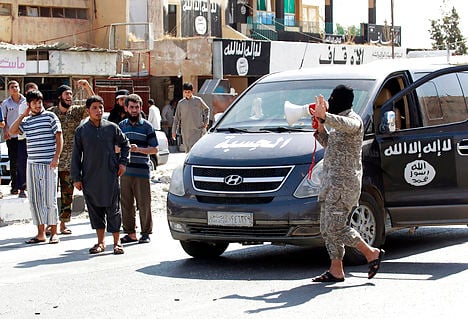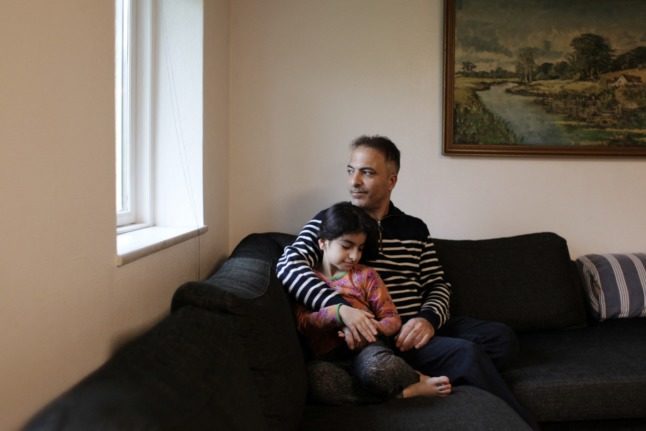SYRIA
Danish mosque declares support for Isis
An Aarhus mosque that has long been accused of radicalising young members has now come out in support of the militant jihadist organisation Islamic State.
Published: 2 September 2014 14:07 CEST
Updated: 6 January 2015 20:06 CET
Updated: 6 January 2015 20:06 CET

An Isis member gives orders on the streets of Tabqa near Raqqa, Syria. Photo: Stringer/Scanpix
A spokesman for the Grimhøj Mosque in Aarhus has openly declared the mosque’s support of the terrorist organisation Islamic State, or Isis.
“An Islamic state will always be what Muslims long for, therefore we cannot help but to support the Islamic State. Even if it makes mistakes, we will just have to wait and see,” mosque spokesman Fadi Abdallah told the online news source Den Korte Avis.
“The conditions aren’t the same down there [in Syria and Iraq, ed.] as they are here. I can fully understand why people are getting killed,” he continued.
In a subsequent interview with TV2 Østjylland, Abdallah stood by his wish for an Islamic state.
"Muslims should have their own state and we support that. Muslims should be able to govern their own state and judge other Muslims without influence from the West," he said.
He told TV2 Østjylland that he doesn't condone Isis's violence.
"It is of course deplorable, and we are sorry that it has come to this," he said.
Grimhøj Mosque has long been accused of promoting an extremist interpretation of Islam. In July, a video emerged of Abu Bilal Ismail, an imam at the mosque, calling on God to “destroy the Zionist Jews”. He has since been officially reported to the police.
East Jutland Police also estimate that of the at least 100 men who have left Denmark to fight in Syria, at least 22 of them come from Grimhøj Mosque.
“We can definitely say that when you go to that mosque, there is an increased risk of heading off for Syria,” police spokesman Allan Aarslev told TV2 Østylland earlier this year.
A recent report from The Economist calculated that when measured by total population, Denmark has sent the second-highest number of foreign fighters to Syria. Only Belgium has a higher number of foreign fighters per million residents. According to CNN's calculations, the number of Danes who have left to fight in Syria account for just 0.044 percent of the 226,000 Muslims living in Denmark.
One Danish-Turkish resident who has fought in Syria warned last week that Denmark was "high up on [Isis's] list" of foreign targets.
“It is an open war now. Isis has said that all infidels should be battled. They should be eliminated and soon it will be Denmark’s turn,” the jihadist, identified only as ÖA, told Politiken.
Isis militants recently released a video showing the brutal killing of American journalist James Foley and according to a still-unconfirmed media report, the same group of Isis jihadists is currently holding a Danish hostage. Another Dane, Daniel Rye Ottosen, was held by the group for 13 months in Syria before being released in June.
Denmark last week approved a military mission to aid Iraqi and Kurdish forces battling Isis in northern Iraq.
Url copied to clipboard!


 Please whitelist us to continue reading.
Please whitelist us to continue reading.
Member comments